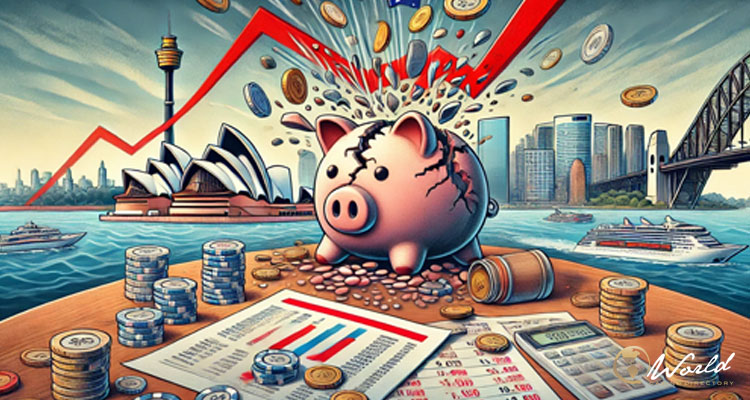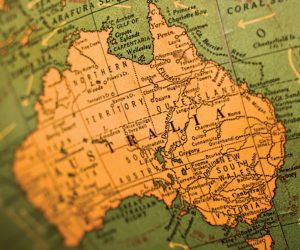Australian Senate Decision on the Ad Ban • The Western Weekender

- by Admin
- September 17, 2024

Australians enjoy placing bets and are also known as some of the world’s biggest gamblers. So the question really remains: would banning an ad really change the stats that Australians have created as betting enthusiasts? Could an ad ban be a step in the wrong direction?
Betting has become a favourite pastime for many. Playing a game or two from sites such as Zamsino.Casino is appealing for Aussies as a way to wind down from a very busy day and enjoy a no deposit free spins bonus.
Online casinos have also taken a further step by adding security measures that restrict players by their age to ensure only mature players access their sites. This article will look at the government‘s response to this move and also how the people feel.
Consequence of Having a Highly Regulated Betting Market
Having regulations on the legal market is likely to create a void for illegal operators to crop up. Illegal providers also do not pay any fees and taxes required of legal providers, which means they will cost the economy.
The government should look at how these taxes could be reinvested into services such as education, the community, and health infrastructure in Australia. As much as the ban may seem like the best thing to do, it calls for a deeper thought and discussion to ensure the right decision is made.
Banning online advertising will not stop Australians from gambling, but it’s likely to push them towards an illegal route. This means it will put Australian bettors at risk as they are likely to find some illegal offshore providers that may promise large bonuses just to lure them to their sites. These sites are also unsafe and are not held to high standards.
The Government’s Response to the Ban
The government has refused to ban advertising online casinos completely but has set a few limits. The government has proposed a limit of two gambling ads per hour on each channel up to 10 p.m. and has proposed a ban of advertisements an hour before and after any live sports.
This result comes a year after the late Labor MP Peter Murphy recommended a comprehensive ban on all forms of advertising related to online gambling. Murphy advocated that the ban be introduced in four stages within three years. MP Kate Chaney recognised Peter’s statement and also mentioned that most gambling companies are profiting from people’s misery.
Previous reports had suggested that the Federal Government would soon ban online gambling advertisements while slowly removing any television counterparts within two years.
How do People Feel?
Australians prefer moderate regulations on gambling ads rather than a total ban. According to research by Freshwater Strategy, 56% of Australians support moderate restrictions on gambling ads online. The survey also found that Australians are looking at reducing the exposure of these ads to their children and vulnerable people.
1,550 voters participated across Australia in this online panel, and additional fieldwork took place from August 30th to September 1st. Overall, the Freshwater poll reveals that 70% of voters prefer that the number of gambling ads be limited instead of banned completely.
The Betting Culture in Australia?
Betting has a special place in Australian culture. In the 1980s, Australia was one of the first countries to regulate its gambling industry, which made it possible for slot machines to be placed in clubs and licenced establishments. Currently, Australia has 0.33% of the world’s population of bettors and 20% of all slot machines.
The last two decades have also seen an explosion as more Australians access their favourite online platforms. Most Australians enjoy sports betting, and it’s estimated that approximately $25 billion is placed on legal wagers every year. Also, 38% of the population in Australia is believed to gamble weekly.
Technology has also greatly aided and created a more sophisticated market for bettors, helping to make the industry more legitimate. Actually, more than 80% of the Australian population have normalised sports betting, as it has also been seen amongst their children understanding the odds of a game. Advocate Martin Thomas argues that this is evidence that the practice has infiltrated every part of society. Many advocates, together with Martin, believe that this is a clear sign that gambling has become hard to escape due to the multiple advertisements.
Prime Minister Anthony argued that the saturation of gambling advertising could be controlled by initiatives such as banning credit card use in online wagering.
How Technologies Can Assist Ads Reach their Target Market
The government can leverage sophisticated technologies to ensure advertisements are shown only to verified users over 18 and allow these users to opt out of receiving them. This approach is likely to protect children and vulnerable players without creating any consequences.
Online casinos are popular for using technologies to create customised packages for online players. This same technology can be used to create relevant ads for the relevant market.
The Latest News
-
December 23, 2024Sorry, Charlie. Son of Tiger makes his first career ace, but Team Woods loses to Team Langer on first playoff hole – Australian Golf Digest
-
December 23, 2024DAZN ADVANCES GLOBAL EXPANSION WITH ACQUISITION OF FOXTEL, A LEADING AUSTRALIAN SPORTS AND ENTERTAINMENT MEDIA GROUP
-
December 23, 2024Big-hitting Brit emerges from the shadows after breakout year
-
December 23, 2024‘White as a ghost’: When Lee’s lightning spell felled an Angel and sent Waugh running
-
December 22, 2024Billionaire-backed sports streamer buys Foxtel






